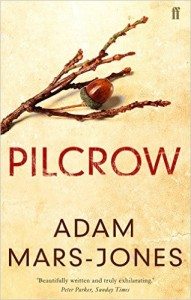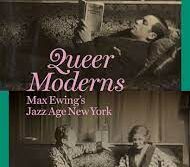 Pilcrow
Pilcrow
by Adam Mars-Jones
Faber & Faber. 525 pages, $21.
JOHN CROMER, the hero of Pilcrow, Adam Mars-Jones’ new novel, is the son of a British Air Commander father and a snobby mother who’s insecure about her class standing. Born after World War II, John attends British boarding schools, where he suffers at the hands of two sadistic attendants and a couple of school bullies, but basks in the appreciation of teachers, parents, and school chums. At the end of Pilcrow, John has lost his virginity and gained a sense of himself and his powers. This is pretty standard fare for such Victorian sagas as Tom Brown’s School Days. What makes Pilcrow different from the legion of English coming-of-age novels is not that John is gay, which is by now part of the territory, but that John is severely disabled—so disabled that even sitting in a wheelchair is a major physical accomplishment.
Mars-Jones sets Pilcrow in the 1950’s and early 60’s. John Cromer was stricken at age four with a rare condition, Still’s Disease, which is a rheumatic illness that swells the joints and causes low-grade fever. Luckily, he was misdiagnosed, and instead of being treated with steroids that would have reduced the swelling but destroyed his brain and kidneys, he was given absolute bed rest, a treatment that has frozen almost all his joints in a prone position. His ankles, knees, hips, shoulders, arms, and even his wrists and fingers have only the narrowest range of motion. John is stilled by Still’s Disease, but he is not quieted. His body may be mummified, but his heart is filled with desire. At first he is brought to a hospital to be treated along with other children with Still’s Disease. There’s little that can be done for him but physical therapy, which is administered by a sadistic German therapist who delights in showing her power by a kind of waterboarding, pushing the helpless children under water and then pulling them out just before they lose consciousness. Her most fiendish torture is forcing them to stand on the tips of their toes, putting maximum pressure on their tender hips and knees. The pain is excruciating, but the children do not complain because they are terrified and, in any event, accustomed to enduring pain from practitioners who authentically care about their health. But John wants something more than the life of an invalid. He wants to go to a real school. So he’s sent instead to the Vulcan School, a place for boys who are handicapped but intelligent. Although the school is poor and often inadequate, those who run it are humane and caring, and John discovers not only his own sexual orientation but other boys who share it, including: Julian, who has polio (this is the early 60’s); Luke, the handsome Lothario of the school who has wrapped the teachers around his sizable finger; and Jimmy Kettle, a rich American with cerebral palsy who worships Tennessee Williams. All of them help John to grow from a self-involved provincial snob into a loving, sophisticated young man. What makes this novel remarkable is the honesty and matter-of-factness of John’s voice. Even the smallest act is a challenge for him—whether it is sitting on a cold toilet or stealing a kiss without Julian’s braces getting caught in his wheel chair—and yet he presents these challenges as mere facts of life, interesting only because of the mechanical problems they involve. What he yearns for is the glimpse of life he gets from Mr. Brayshaw, the headmaster of Sidcot, the Quaker school where his brother is sent. Brayshaw is someone “genuinely unusual” for whom “disability [is]treated as unimportant, neither here nor there.” For Brayshaw, John’s disability “doesn’t seem much of an obstacle, as obstacles go.” But, of course, his parents are too invested in the tragedy of John’s illness to allow him to go to Sidcot. Pilcrow is extraordinary for the ordinariness with which it treats the reality of severe disability. John is like any other boy growing up gay, except that he can only caress his lovers’ genitals with the back of his hands because his elbows and wrists are frozen shut—not much of an obstacle, as obstacles go. David Bergman, poetry editor for this magazine, teaches English at Towson University.





